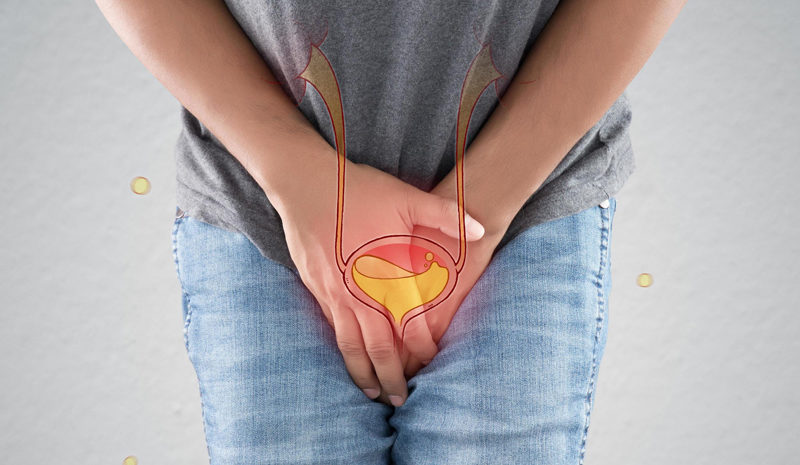An enlarged prostate, also known as benign prostatic hyperplasia (BPH), is a common condition affecting men, particularly those over 50. While it is not cancerous, it can cause troublesome urinary symptoms that impact daily life. Many men experience frequent urination, weak urine flow, and a constant urge to visit the bathroom. Left untreated, an enlarged prostate can lead to bladder and kidney problems.
The prostate gland, which surrounds the urethra, grows larger with age. As it enlarges, it presses against the urethra, restricting the flow of urine. This leads to frustrating symptoms that can disrupt sleep, work, and social activities. Fortunately, several effective treatments are available, ranging from lifestyle adjustments and supplements to medications and surgical procedures.
This article explores the best strategies for managing an enlarged prostate. You’ll learn about natural remedies, dietary changes, medical treatments, and preventive measures to maintain prostate health. If you or a loved one are dealing with BPH, this guide will help you take proactive steps toward relief and improved quality of life.
Recognising the Symptoms of an Enlarged Prostate
Men with an enlarged prostate often notice urinary difficulties that worsen over time. Symptoms vary in severity, but common signs include:
- Frequent urination, especially at night (nocturia)
- Weak or slow urine flow
- Difficulty starting or stopping urination
- A feeling that the bladder is not empty
- Straining to urinate
- Dribbling at the end of urination
- Sudden urges to urinate
- Pain or discomfort in the lower abdomen
If left untreated, severe cases can lead to urinary retention, bladder infections, or kidney damage. Recognising these symptoms early allows for better management and relief.
An enlarged prostate, also known as benign prostatic hyperplasia (BPH), is a common condition in men, especially over 50. While it’s not cancerous, it can cause uncomfortable urinary symptoms. Here’s a step-by-step guide on what to do if you have an enlarged prostate:
1. Identify Symptoms of an Enlarged Prostate
🔹 Frequent urination (especially at night)
🔹 Weak urine flow
🔹 Difficulty starting and stopping urination
🔹 A feeling that the bladder isn’t empty
🔹 Urgency to urinate
🔹 Dribbling at the end of urination
If you notice these symptoms, consult a doctor for proper evaluation.
2. See a Doctor for Diagnosis
Your doctor may recommend tests such as:
✅ Digital Rectal Exam (DRE) – Checks the size of the prostate.
✅ PSA Blood Test – Measures prostate-specific antigen levels.
✅ Urine Test (Urinalysis) – Detects infections or other issues.
✅ Uroflowmetry – Measures how quickly urine flows.
✅ Prostate Ultrasound – Gives detailed imaging of the prostate.
Early diagnosis helps in selecting the best treatment approach.
3. Try Natural Remedies for Prostate Health
Many lifestyle changes and natural remedies can help shrink the prostate and relieve symptoms.

✅ Adjust Your Diet
🍅 Eat Prostate-Friendly Foods:
✔ Tomatoes (rich in lycopene)
✔ Pumpkin seeds (high in zinc)
✔ Green tea (reduces inflammation)
✔ Fatty fish (rich in omega-3s)
🚫 Avoid Prostate-Irritating Foods:
❌ Caffeine & Alcohol (increase urgency)
❌ Spicy foods (can worsen irritation)
❌ Processed meats & dairy (increase inflammation)
Also Read: What Foods Will Shrink Enlarged Prostate?
✅ Stay Hydrated – But Smartly
💧 Drink plenty of water, but reduce fluid intake in the evening to minimize nighttime urination.
✅ Exercise Regularly
🏃♂️ Best Exercises for Prostate Health:
✔ Walking or jogging
✔ Yoga (helps reduce pelvic tension)
✔ Kegel exercises (strengthens pelvic floor muscles)
✅ Manage Stress
😌 High stress can worsen symptoms. Try:
✔ Deep breathing exercises
✔ Meditation or mindfulness
✔ Getting enough sleep
✅ Try Herbal Supplements
🌿 Best Supplements for Prostate Health:
✔ Saw Palmetto – Blocks DHT, a hormone linked to prostate enlargement.
✔ Beta-Sitosterol – Improves urinary symptoms.
✔ Pygeum Bark Extract – Reduces inflammation.
✔ Pumpkin Seed Oil – Supports urinary flow.
✔ Zinc & Selenium – Essential for prostate function.
4. Medical Treatments for Enlarged Prostate
If lifestyle changes and supplements don’t provide enough relief, medications or medical procedures may be needed.
✅ Medications for BPH
💊 Alpha-Blockers (Relax Prostate Muscles)
✔ Tamsulosin (Flomax)
✔ Alfuzosin (Uroxatral)
✔ Doxazosin (Cardura)
💊 5-Alpha Reductase Inhibitors (Shrink the Prostate)
✔ Finasteride (Proscar)
✔ Dutasteride (Avodart)
💊 Combination Therapy
✔ Alpha-blockers + 5-alpha reductase inhibitors provide faster relief and long-term improvement.
💊 Over-the-Counter Relief
✔ NSAIDs (like ibuprofen) can help reduce prostate inflammation.
5. Advanced Treatments for Severe Cases
If symptoms are severe and medications don’t work, minimally invasive procedures or surgery may be recommended.
✅ Minimally Invasive Procedures
🔹 TUMT (Transurethral Microwave Therapy) – Uses heat to shrink the prostate.
🔹 TUNA (Transurethral Needle Ablation) – Destroys excess prostate tissue.
🔹 UroLift Procedure – Lifts the prostate to open the urinary passage.
🔹 Rezum Therapy – Uses water vapor therapy to shrink prostate tissue.
✅ Surgery for BPH (Last Resort)
If all else fails, surgical procedures like TURP (Transurethral Resection of the Prostate) may be necessary.
6. When to Seek Immediate Medical Help
⚠ Seek urgent medical care if you experience:
❗ Inability to urinate at all
❗ Severe pain or blood in urine
❗ High fever with urinary issues
These symptoms could indicate a serious condition like acute urinary retention or infection.
Lifestyle Changes to Manage an Enlarged Prostate
Many men find that simple lifestyle changes help reduce symptoms and improve bladder control. Here are some of the best natural strategies:
1. Adjust Your Diet for Prostate Health
Eating the right foods can make a significant difference in managing an enlarged prostate. Focus on:
✔ Tomatoes – Rich in lycopene, which supports prostate health
✔ Pumpkin seeds – Contain zinc, essential for prostate function
✔ Green tea – Helps reduce inflammation
✔ Fatty fish – High in omega-3 fatty acids that lower inflammation
✔ Berries – Packed with antioxidants to support cellular health
Avoid processed foods, caffeine, alcohol, and excessive dairy, as they may worsen symptoms.
2. Exercise Regularly
Maintaining an active lifestyle improves circulation, reduces inflammation, and supports bladder control. The best exercises for prostate health include:
🏃♂️ Brisk walking
🧘 Yoga (helps relax pelvic muscles)
🏋️ Kegel exercises (strengthens pelvic floor muscles)
3. Manage Stress and Sleep Well
Stress and poor sleep worsen hormonal imbalances that affect prostate health. Reduce stress with meditation, deep breathing exercises, and mindfulness techniques. Also, ensure 7-8 hours of quality sleep to aid healing.
Natural Supplements for Prostate Health
Many men turn to natural supplements to support prostate function. Some of the best options include:
🌿 Saw Palmetto – Blocks DHT, a hormone that contributes to prostate enlargement
🌿 Beta-Sitosterol – Improves urine flow and reduces swelling
🌿 Pygeum Bark Extract – Relieves urinary symptoms
🌿 Pumpkin Seed Oil – Supports healthy urination patterns
🌿 Zinc & Selenium – Boost immune function and prostate health
When choosing supplements, opt for clinically tested formulas to ensure safety and effectiveness.
Medical Treatments for an Enlarged Prostate
If lifestyle changes and supplements do not provide sufficient relief, medical treatments may be necessary. Common options include:
1. Medications
Doctors often prescribe the following medications to manage BPH:
💊 Alpha-blockers (Tamsulosin, Alfuzosin) – Relax prostate muscles for easier urination
💊 5-Alpha Reductase Inhibitors (Finasteride, Dutasteride) – Reduce prostate size over time
💊 Combination Therapy – Uses both types of medications for better results
2. Minimally Invasive Procedures
For moderate to severe cases, procedures like Rezum Therapy (water vapor treatment) or UroLift (prostate tissue repositioning) can offer relief without major surgery.
3. Surgery for Severe Cases
If medications and non-invasive treatments fail, doctors may recommend TURP (Transurethral Resection of the Prostate) or laser therapy to remove excess prostate tissue.
Preventive Measures for Long-Term Prostate Health
Preventing BPH or slowing its progression is possible with the right habits:
✔ Maintain a healthy weight – Obesity increases prostate enlargement risk
✔ Limit alcohol and caffeine – Both irritate the bladder
✔ Stay hydrated – Drink water regularly but reduce intake before bedtime
✔ Get regular check-ups – Early detection helps prevent complications
How to reduce prostate enlargement?
Prostate enlargement, also known as benign prostatic hyperplasia (BPH), is a common condition in aging men. It leads to urinary issues like frequent urination, weak urine flow, and bladder discomfort. While an enlarged prostate does not shrink on its own, several natural remedies, lifestyle changes, and medical treatments can help reduce its size and ease symptoms.
1. Natural Remedies to Reduce Prostate Enlargement
Many men prefer natural approaches to support prostate health before considering medications or surgery. Here are the most effective dietary and lifestyle changes for managing an enlarged prostate:
✅ Adjust Your Diet for Prostate Health
Eating the right foods can reduce inflammation, support bladder function, and promote a healthy prostate.
✔ Tomatoes – Rich in lycopene, an antioxidant that supports prostate health
✔ Pumpkin seeds – High in zinc, which helps regulate prostate size
✔ Green tea – Contains catechins, which reduce inflammation
✔ Fatty fish – Omega-3 fatty acids help lower inflammation
✔ Berries – Full of antioxidants to protect prostate cells
✔ Broccoli & Cauliflower – High in sulforaphane, which supports prostate function
21 Foods To Prevent An Enlarged Prostate
🚫 Avoid These Foods:
❌ Processed foods and excessive red meat (increase inflammation)
❌ Dairy and high-fat foods (may raise estrogen levels, worsening symptoms)
❌ Caffeine and alcohol (can irritate the bladder)
✅ Exercise Regularly
Physical activity helps regulate hormones, improve blood circulation, and support bladder control. The best exercises for reducing prostate enlargement include:
🏃 Brisk walking or jogging – Improves circulation and hormone balance
🧘 Yoga – Helps reduce pelvic tension
🏋️ Kegel exercises – Strengthens pelvic floor muscles for better bladder control
✅ Manage Stress & Sleep Well
High stress and poor sleep can worsen hormonal imbalances and contribute to inflammation. Reduce stress with:
✔ Meditation and deep breathing
✔ Relaxing evening routines for better sleep
✔ Limiting screen time before bed
✅ Stay Hydrated, But Smartly
💧 Drink enough water during the day, but reduce intake before bedtime to minimize nighttime urination.
2. Herbal & Natural Supplements for Enlarged Prostate
🌿 Saw Palmetto – Blocks DHT, a hormone linked to prostate enlargement
🌿 Beta-Sitosterol – Supports urinary flow and reduces inflammation
🌿 Pygeum Bark Extract – Eases bladder discomfort
🌿 Pumpkin Seed Oil – Supports urinary tract function
🌿 Zinc & Selenium – Boosts prostate health
When selecting supplements, choose clinically tested products to ensure safety and effectiveness.
3. Medical Treatments to Shrink an Enlarged Prostate
If lifestyle changes and supplements do not provide enough relief, medical intervention may be necessary.
✅ Medications for BPH
Doctors may prescribe the following medications to help shrink the prostate and ease symptoms:
💊 Alpha-blockers (Tamsulosin, Alfuzosin) – Relax prostate muscles to improve urine flow
💊 5-Alpha Reductase Inhibitors (Finasteride, Dutasteride) – Reduce DHT levels, shrinking the prostate over time
💊 Combination Therapy – Uses both alpha-blockers and 5-alpha reductase inhibitors for better results
✅ Minimally Invasive Procedures
For men with moderate to severe symptoms, non-surgical treatments can offer relief:
🔹 Rezum Therapy – Uses water vapor to shrink excess prostate tissue
🔹 UroLift Procedure – Repositions the prostate to open the urinary passage
🔹 TUMT (Transurethral Microwave Therapy) – Uses heat to reduce prostate size
✅ Surgery for Severe Cases
In extreme cases, surgical procedures like TURP (Transurethral Resection of the Prostate) may be needed to remove excess prostate tissue.
4. Long-Term Preventive Measures
To prevent further prostate enlargement, adopt these habits:
✔ Maintain a healthy weight – Excess body fat can contribute to prostate swelling
✔ Limit caffeine & alcohol – Both irritate the bladder and worsen symptoms
✔ Get regular check-ups – Early detection helps prevent severe complications
FAQs
Can an enlarged prostate go away on its own?
No, an enlarged prostate does not shrink naturally. However, lifestyle changes and medical treatments can manage symptoms effectively.
What foods should I avoid if I have an enlarged prostate?
Avoid caffeine, alcohol, processed meats, spicy foods, and dairy, as they can worsen symptoms.
Is an enlarged prostate the same as prostate cancer?
No, BPH is a non-cancerous condition, while prostate cancer involves abnormal cell growth. A doctor can perform tests to confirm the diagnosis.
How do I stop frequent urination at night?
Reduce evening fluid intake, avoid caffeine and alcohol, and consider pelvic floor exercises to strengthen bladder control.
Are herbal supplements effective for an enlarged prostate?
Yes, Saw Palmetto, Beta-Sitosterol, and Pygeum Bark have been clinically proven to help relieve symptoms.
When should I see a doctor for an enlarged prostate?
Consult a doctor if you experience severe urinary difficulties, blood in urine, or sudden inability to urinate, as these may indicate serious complications.
Final Words
An enlarged prostate can be frustrating, but many effective solutions exist to manage symptoms and improve quality of life. Simple lifestyle changes, the right supplements, and medical treatments can help men regain bladder control and comfort.
If you experience frequent urination, weak urine flow, or discomfort, take action early. Consult a doctor, explore natural remedies, and adjust your daily habits. With the right approach, you can maintain strong prostate health and long-term well-being.






